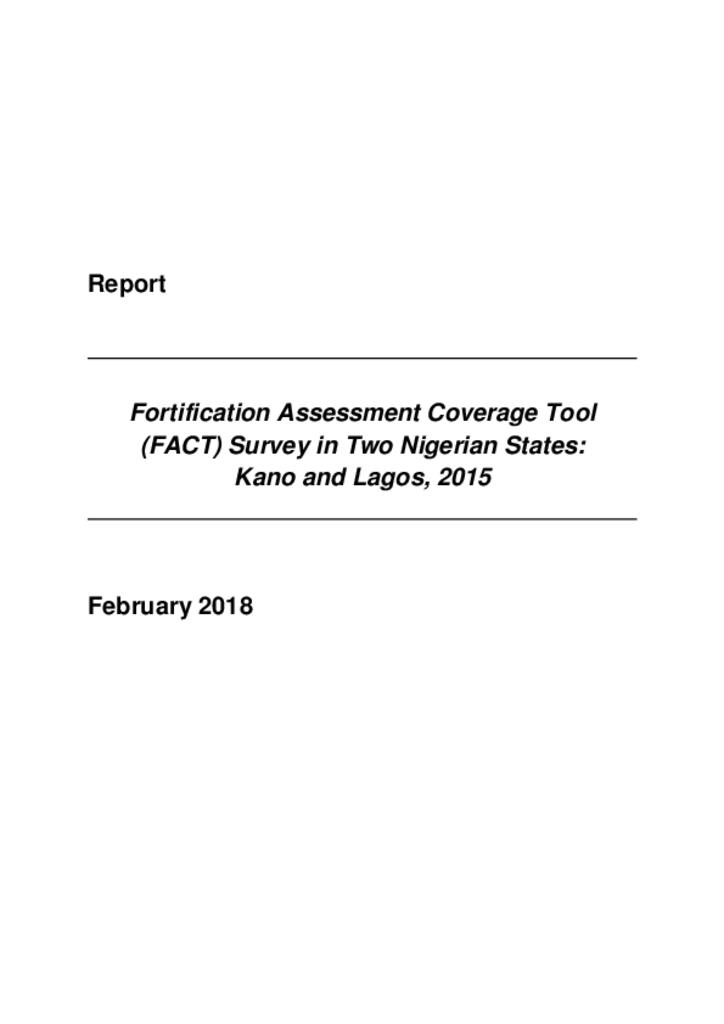In Nigeria, national fortification of salt with iodine began in 1993, and fortification of wheat flour, semolina flour, maize flour, sugar, and oil with multiple micronutrients has been mandated by law since 2002. Currently, there is a lack of information available on how well these programmes are performing, household coverage and intake of these fortified foods, and if vulnerable populations are being reached.
In 2015, GAIN, the United States Centres for Disease Control and Prevention (CDC), and Oxford Policy Management (OPM), conducted a cross-sectional, two-stage, cluster household Fortification Assessment Coverage Toolkit (FACT) survey in Nigeria. The purpose of the survey was to assess the household coverage and potential contribution of fortified foods to the micronutrient intake among women of reproductive age in two states: Kano and Lagos.
The survey was designed to be representative of Kano and Lagos States. Data were collected on: household demographics and socioeconomic status; education levels within the household; housing conditions; recent infant and child mortality; water, sanitation, and hygiene (WASH) practices; food security; women’s dietary diversity; and coverage and consumption of fortified salt, wheat flour, semolina flour, maize flour, sugar, and oil. Food samples of salt, wheat flour, semolina flour, maize flour, sugar, and oil were collected from participating households and analysed quantitatively to determine fortification levels of select nutrients: iron (wheat flour, semolina flour), vitamin A (maize flour, sugar, oil), or iodine (salt).
The results revealed that there is high coverage of fortifiable salt (in Kano and Lagos), fortifiable wheat flour (in Kano), fortifiable semolina flour (in Lagos), and fortifiable sugar (in Kano and Lagos), indicating high potential for fortified foods to contribute to nutrient intakes. Coverage of fortifiable maize flour and oil is lower than other foods because the majority is made at home and not industrially processed, indicating a low potential for impact from fortifying these foods. Fortification adequacy may be of concern for all foods in Kano and for semolina flour, maize flour, sugar, and oil in Lagos.
